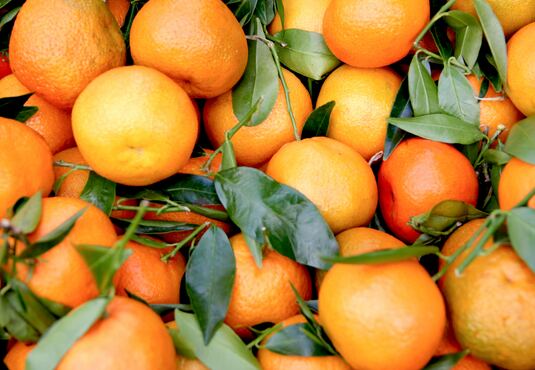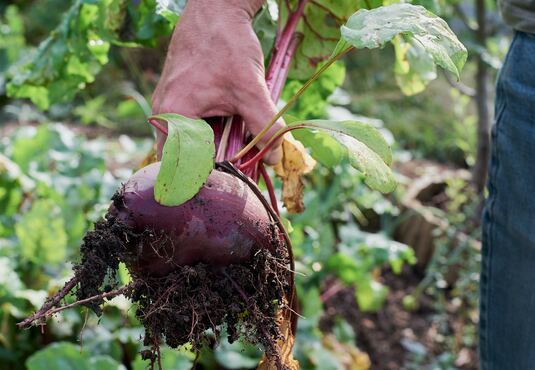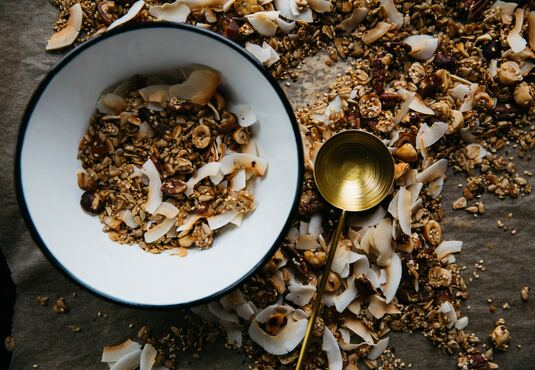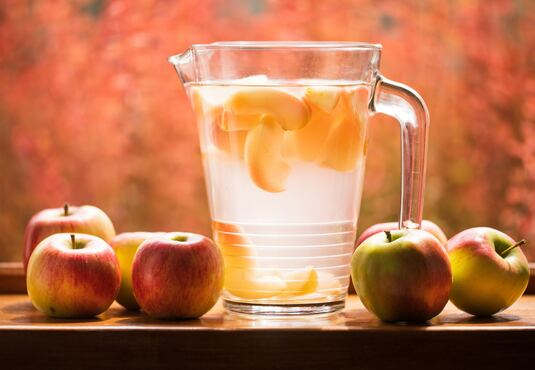
A closer look at plant-based drinks
Plant-based drinks have been gaining popularity in recent years, driven by health, environmental, and ethical reasons. It's not just vegans or vegetarians who opt for plant-based milk alternatives; even people following a flexitarian diet, who consciously reduce their consumption of animal products, are often choosing them.
In response to the growing demand, there is now a wide range of plant-based drinks available. These drinks are mostly made from (pseudo-) grains, nuts, seeds, or legumes, using various production methods. The process typically involves grinding, mixing, soaking with water. Often followed by filtering, homogenization, and heat treatment for preservation, like animal-based products. There are pure varieties and those with added fruit components. Additives such as stabilizers or sugar can also be included. The diverse range of products is almost overwhelming, and comparing their health value has become challenging. Therefore, a recent market analysis conducted by the preventive medicine institute SIPCAN examined over 400 products in detail. Here are the results:
Nearly 400 plant-based drinks and spoonable products examined
"We thoroughly examined over 400 products for drinking and spooning in our milk alternatives check. With this, we aim to raise awareness among nutrition-conscious consumers following a vegetarian or vegan diet and help them make healthier choices in this trendy product category," explains study leader and Rauch Healthy Lifestyle Board member Dr. Manuel Schätzer.
To assist in product selection, SIPCAN (preventive medicine institute) has established these easy-to-remember criteria for recommended milk alternatives (Note: based on the corresponding criteria of the World Health Organization and DACH reference values):
• Maximum of 6.7 grams of sugar per 100 grams/milliliters of product (including naturally occurring sugars)
• No artificial sweeteners or sugar substitutes
• Maximum of 4.2 grams of fat per 100 grams/milliliters of product
Oatdrinks tested with the Sipcan Beverage-Check
Nationwide, data was collected on 424 plant-based milk alternatives from retail stores or through direct contact with the food industry. A comparison with the established criteria revealed that nearly two-thirds of all products (276 or 65 percent) met the criteria. However, more than a third of the products (35 percent) were either too sweet or high in fat. A quarter (26 percent) of all products exceeded the sugar limit of 6.7 grams, and one in ten products (9 percent) contained excessive fat. The average sugar content was 4.6 grams, and the average fat content was 2.7 grams (per 100 grams or milliliters). Notably, none of the products were sweetened with artificial sweeteners.
The base ingredient significantly influences the nutritional values
In products made purely from coconut, the average fat content was significantly higher at 6.7 grams, exceeding the criterion of 4.2 grams (per 100 grams or millilitres). In contrast, products based on rice had an average fat content of only 1.0 gram. Oat, soy, coconut, almond, and rice products dominate the market. Oats, accounting for one-third of all products, are the most popular ingredient by far. In almost a quarter (24 percent) of the products, oats are the only base ingredient. Only 12 percent (51) of the products do not contain any of the base ingredients but are exclusively made from buckwheat, cashews, spelt, peas, hemp seeds, hazelnuts, millet, lupines, Brazil nuts, pistachios, quinoa, or rye.
Always have a look at the ingredients list
Of particular note in this product segment is the influence of the production method on the sugar content. For example, there are plant-based drinks with zero grams of added sugar and others that exceed the SIPCAN criteria for sugar content, despite not having added sugar listed in their ingredients. This is due to enzymes used in the production process of some products. These enzymes convert the carbohydrates of the base ingredient into sugar, resulting in a sweeter product. However, these enzymes are not listed in the ingredients because they cannot be detected in the final product. Therefore, a product without added sugar may still contain sugar. When it comes to milk alternatives, it is essential to carefully examine the nutritional table and not just rely on the ingredients list.
Organic doesn't make a difference in terms of sugar and fat
Whether a product is organic or conventional had little influence in the SIPCAN check. Two-thirds of the products in both groups met the criteria. The average sugar content was 4.7 grams (organic) and 4.4 grams (conventional), and the average fat content was 2.7 grams (organic) and 2.8 grams (conventional). 67 percent (283) of the products were organic.
Plant-based alternatives or dairy milk?
There is considerable uncertainty among the population regarding the health implications of dairy milk products. It is clear that these products contain a range of important vitamins and minerals, especially calcium, essential for bone health. Additionally, they provide valuable protein. Fermented dairy products such as yogurt also contain probiotics, which have a positive impact on gut health. "For all these reasons, milk and dairy products rightfully have a place in the Austrian food pyramid," emphasizes Nadine Moser, a dietitian at SIPCAN. It is recommended to consume two servings of 250 grams each, along with a serving of cheese.
For those who wish or need to avoid dairy milk and dairy products for ecological, ethical, or health reasons, plant-based products offer a good alternative. However, it is important to ensure that these products are fortified with calcium or that other sources of calcium, such as calcium-rich mineral water, are consumed to prevent deficiencies," advises Moser.
Online Sugar Check
All products from the new milk alternatives check can be searched online, allowing for comparison of results and nutritional values. Comprehensive downloadable documents list all products by name or sugar content and include detailed background information and recommendations. All information can be found HERE.
More information at:








